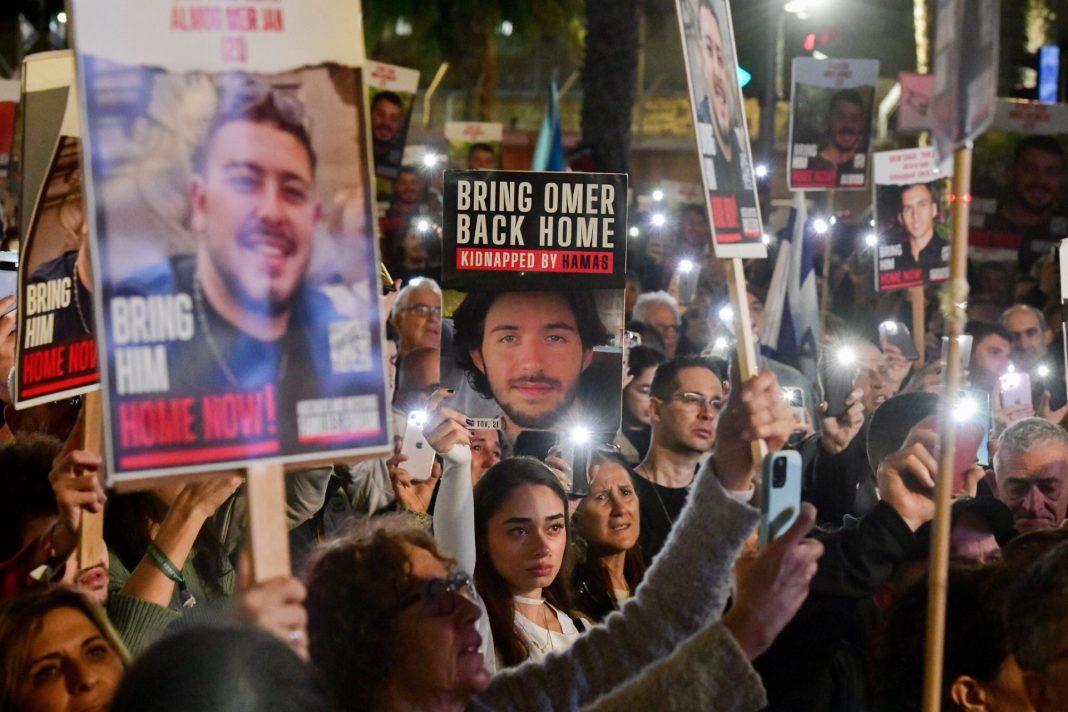“We are in a better place than we were a few weeks ago,” al-Thani said at a forum hosted by the Atlantic Council in Washington DC, on Monday.
Thani’s comments come after CIA director Bill Burns travelled to Paris, France, over the weekend for high-level talks with Israeli, Egyptian and Qatari officials.
Thani suggested that the officials had made progress in the talks and reached a framework for a deal which he stated “might lead to a ceasefire permanently in the future”.
The Hamas-led attacks on southern Israel which sparked the war saw 1,139 people killed and over two hundred taken back to Gaza as hostages.
He appeared to confirm reports that the truce would see women and children hostages held in Gaza released, with more humanitarian aid also entering besieged Gaza in exchange for a pause in fighting. Over 26,600 Palestinians have been killed in Gaza.
The truce could last for 60 days, according to US and Israeli media reports, substantially longer than a deal struck in November that freed more than 100 hostages in exchange for Palestinian prisoners.
“The framework that yesterday has been agreed upon with all the parties was a framework based on what’s been proposed by the Israelis and a counterproposal by Hamas, and we tried to blend things together,” Thani continued.
A key sticking point in the agreement has been Israel’s refusal to agree to a permanent ceasefire in Gaza, which Hamas has set as a precondition for any pause in fighting and the release of hostages.
Prime Minister Benjamin Netanyahu’s office was quick to squash rumours that the two sides were nearing a deal, saying “the reports…are not correct and include conditions that are not acceptable to Israel”.
Hamas also appeared to reject the Qatari official’s statements.
Senior Hamas official Taher al-Nunu told AFP that the group wanted a “complete and comprehensive ceasefire, not a temporary truce”, adding that once the fighting stopped, Hamas would be willing to discuss “the rest of the details”, including hostage releases.
Meanwhile, at a press conference in Beirut on Monday, senior Hamas official Osama Hamdan said Israel was not serious about striking a ceasefire and that rumours of a deal were aimed at “satisfying the families of those detained by the resistance”.
Netanyahu has come under growing pressure from hostages’ families to strike a deal.
Qatar, which hosts Hamas’s political leaders at the request of the US, is also under pressure to demonstrate that it can leverage its ties to the group and sway in Gaza to free the hostages.
